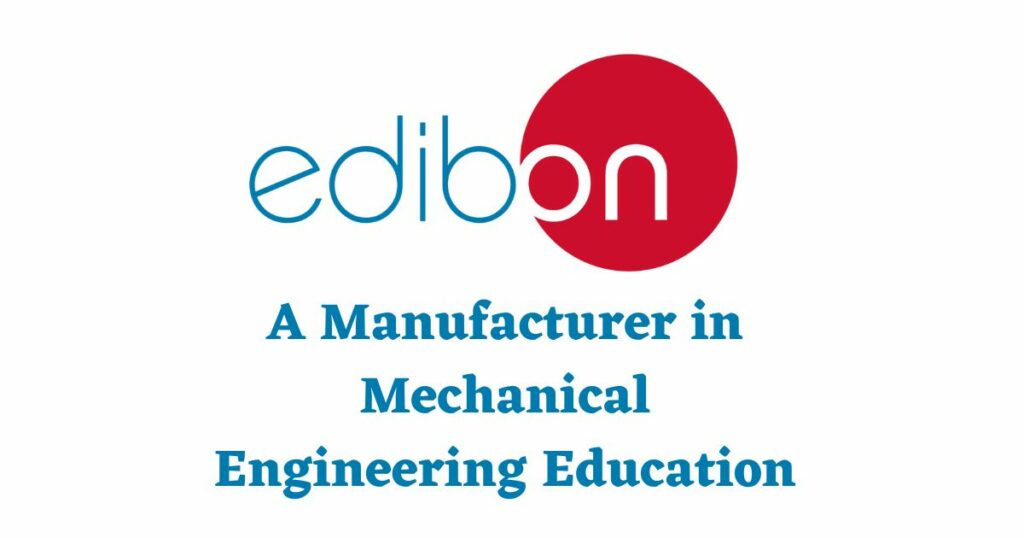In the realm of industrial engineering education, one name that stands out prominently is Edibon. Renowned as a global manufacturer of technical equipment for engineering education, Edibon has consistently played a pivotal role in shaping the future of aspiring engineers. This article delves into the essence of Edibon’s contributions, focusing particularly on its noteworthy equipment for mechanical engineering education.
Introduction to Edibon:
Edibon, established with a commitment to excellence, has emerged as a frontrunner in providing state-of-the-art solutions for educational institutions worldwide. The company’s dedication to advancing industrial engineering education is evident through its comprehensive range of equipment designed to enhance the learning experience for students.
Global Impact:
Edibon’s influence spans across the globe, with its educational tools and systems implemented in numerous institutions. From North America to Asia, Edibon’s commitment to fostering a deep understanding of industrial engineering principles is unwavering. The company’s global presence reflects its success in meeting the diverse needs of educational programs internationally.
Key Features of Edibon Equipment:
Practical Application:
Hands-On Learning: Edibon’s equipment emphasizes hands-on learning experiences, allowing students to actively engage with the principles of industrial engineering. Through practical application, students can bridge the gap between theoretical concepts and real-world scenarios.
Experimental Modules: Each piece of equipment is equipped with experimental modules that cover a wide range of topics. For mechanical engineering, these modules might include exercises on stress analysis, dynamics, and kinematics, providing students with a comprehensive practical foundation.
Technological Innovation:
Integration of Advanced Technologies: Edibon consistently integrates cutting-edge technologies into its equipment. Whether it’s incorporating sensors for data collection or simulation software for virtual experiments, students benefit from exposure to the latest advancements in industrial engineering.
Industry-Relevant Technology: The technology embedded in Edibon equipment mirrors industry standards, ensuring that students are familiarized with tools and systems commonly used in the professional field. This aligns educational programs with the evolving technological landscape of industrial engineering.
Customization and Flexibility:
Adaptability to Curriculum: Edibon’s equipment is designed to be adaptable to various curricula, making it versatile for educational institutions with different program structures. This flexibility allows educators to tailor their courses to meet specific learning objectives.
Modular Design: The modular design of Edibon equipment enables easy customization. Educators can choose specific modules or experiments based on the focus of their mechanical engineering curriculum, providing a tailored learning experience for students.
Comprehensive Learning Resources:
Educational Manuals: Edibon provides comprehensive educational manuals accompanying each piece of equipment. These manuals offer detailed instructions, theoretical background, and suggested experiments, empowering both students and educators with valuable resources.
Online Support: In addition to printed materials, Edibon offers online support resources. This may include video tutorials, virtual simulations, and forums where students can collaborate and seek assistance, enhancing the overall learning experience.
Safety and Durability:
Built-In Safety Features: Edibon prioritizes the safety of students and educators. The equipment is equipped with built-in safety features, ensuring that experiments can be conducted securely.
Durable Construction: Recognizing the rigorous nature of educational settings, Edibon equipment is built with durability in mind. Sturdy construction ensures longevity, even in environments with frequent use.
Examples of Equipment for Mechanical Engineering Education:
1. Thermal Engineering Systems:
Edibon offers a range of thermal engineering systems that provide students with an in-depth understanding of heat transfer, thermodynamics, and energy conversion. These systems include experiments on heat exchangers, refrigeration cycles, and combustion processes.
2. Fluid Mechanics Apparatus:
Fluid mechanics is a core aspect of mechanical engineering, and Edibon’s apparatus for fluid mechanics experiments offers hands-on learning opportunities. Students can explore topics such as fluid dynamics, hydraulic machinery, and aerodynamics through practical exercises.
3. Materials Testing Equipment:
Understanding the properties of materials is crucial in mechanical engineering. Edibon’s materials testing equipment allows students to conduct experiments related to strength, elasticity, and material behavior, contributing to a comprehensive understanding of materials science.
Conclusion:
Edibon’s commitment to excellence in industrial engineering education is evident through its global impact and innovative approach to equipment design. By highlighting some examples of equipment for mechanical engineering education, it’s clear that Edibon plays a vital role in shaping the next generation of engineers. As the educational landscape continues to evolve, Edibon remains a reliable partner in providing the tools necessary for a well-rounded engineering education.










